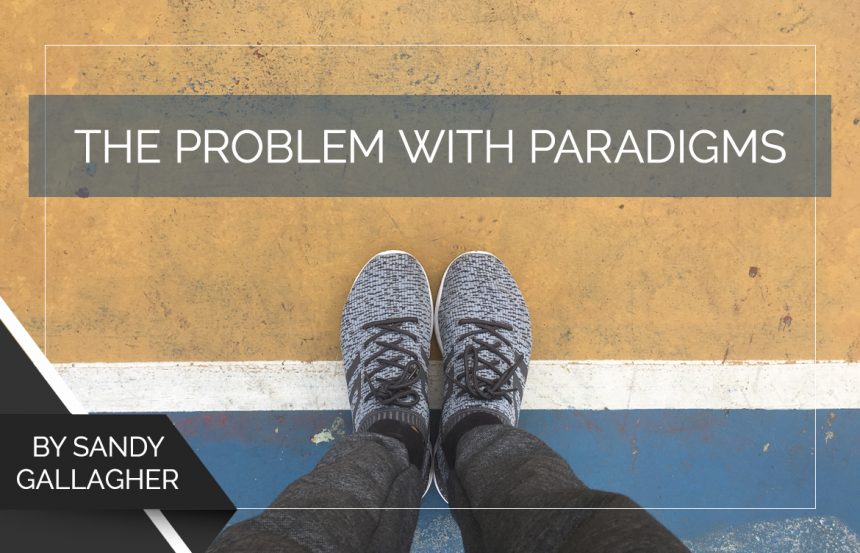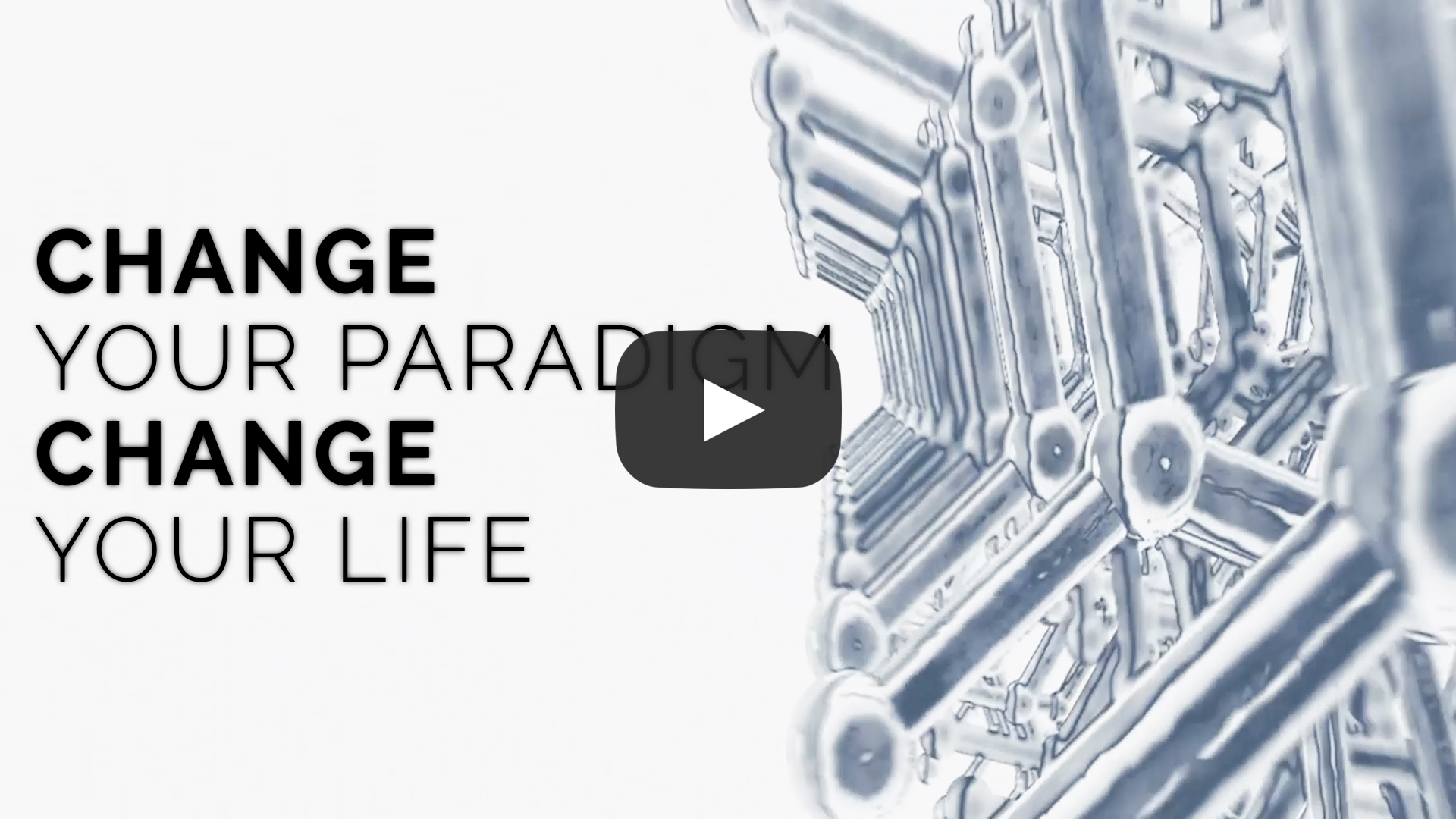
Did you know that, despite their best efforts, more than 90 percent of the population keeps getting the same results, year in and year out?
If there is an improvement, it’s typically minimal—not nearly enough to make a substantial difference in their lifestyle.
What’s holding these hard-working people back?
One thing—paradigms.
What is a paradigm?
A paradigm can be likened to a mental program that has been installed in your subconscious mind. And this program has almost exclusive control over your habitual behavior.
When you think about it, virtually all of your behavior is habitual. From the moment you get out of bed each morning until your head hits the pillow at night, most everything you do is part of a routine.
Your paradigm has enormous influence over most aspects of your life. For instance, it controls your…
- Perception
- Use of time
- Creativity
- Effectiveness
- Productivity
- Logic
- Ability to earn money
The paradigm puts a box around each and every one of these areas, and no matter how hard you try, you can’t knock down the walls until you change the habits that make up the paradigm.
Take a look at some common habits that can impact each of these aspects of life.
Perception
We are often our own worst critics, but when you have a habit of continuously putting yourself down, you are implying or feeling that you are not good enough. But for what and for whom? And according to whose standards?
If this habit or belief is very strong in you, then how can you possibly have created a happy, prosperous, healthy life? Somehow your mental programming would always be contradicting it.
Use of Time
Whether it’s on a computer, TV, tablet or phone, millions of people spend an excessive amount of time each day staring at a screen.
Conducting work on one of these devices is nonnegotiable. However, it’s not necessary to spend hours on Facebook, Instagram, Twitter, watching TV or googling your favorite celebrities when you’re not working.
Doing so is a waste of valuable time because it keeps you from engaging in meaningful activities that can greatly improve the quality of life.
Creativity
It’s very common for people to believe that there’s only one right answer to a problem, question, or challenge.
However, if you think that most questions generate only one correct answer, you are eliminating countless opportunities and possibilities from your life.
This way of thinking stems from an educational system that ingrains in our minds the idea that it’s better to memorize correct answers than look for them yourself.
That approach might work in mathematical problems, but anywhere else it’s incredibly limiting. Whether it’s sales, marketing, or deciding the next step to take in your life, there’s never only one correct answer. There are many different creative approaches to everything in life.
Effectiveness
Do you put things off because you “work best under pressure?” Perhaps you stay up late or all night to finish a project or cram for a test. Or you routinely pay late fees for bills and buy gifts on the way to the party.
Procrastinators sabotage themselves to avoid doing something that they don’t want to do. The outcome is often poor-quality projects, wasted money and a late arrival at events.
This is not about time management; it’s about being less effective than you can be by allowing fear, outside motivations or a sense of rebelling control your actions.
Whether it’s fear of failure or success, fear of making a bad decision, or rebelling against controlling bosses, friends, or authority figures, the habit of procrastinating never brings out the best in you.
Productivity
Many people take great pride in multitasking. However, doing more than one thing at once is actually less productive than doing a single thing at a time. When you try to do two things at once, your brain lacks the capacity to perform each task successfully.
However, when you eliminate distractions and put all your attention on one task, you can accomplish a tremendous amount in a very short period of time.
Logic
Most people’s thoughts are random and chaotic because they are constantly reacting to what they see, hear, taste, touch or smell. It’s very difficult to think logically when you’re reacting to everything that is happening around you. And if you want to improve any area of your life, it’s impossible to do so if you’re usually focusing on your present circumstances.
Thinking and acting logically requires orderly thoughts. If you want orderly thoughts, develop a habit of thinking about what you want and responding to life instead of constantly reacting to it.
Ability to Earn Money
Wealthy people are comfortable talking about money. Most people, however, are uncomfortable with the idea of money, and therefore, they habitually avoid talking about it, and they don’t set goals to make a lot of it.
If you can’t easily see yourself enjoying abundance and financial freedom, try changing your beliefs about money and setting goals that will help you bring more of yourself to the surface.
How to determine what your paradigm is
The best way to identify your paradigm is to look at your current results. So I encourage you to take a few moments to picture your life and consider the following questions …
- Does your day begin with purpose and gratitude?
- What’s the most money you have ever made in a year?
- Are you living the way you really want to live? If not, why not?
Answering these and similar questions will help you zero in on your paradigm, what’s controlling the results you are getting in your life, and identify which habits are working for you and which are working against you.
The good news is if you’re not happy with your results, and you’d like to do better, you can do something about it.
How do you change a paradigm?
You can’t change your paradigm with self-will alone. In fact, there are only two ways to do it.
One is an emotional impact. That is when something hits you so hard that your life will never be the same. It’s usually of a negative nature, but it can also be something that is positive.
The second way is to change the paradigm in the same manner it was formed—through repetition of ideas. It is exposing yourself to a new idea over and over again with the goal of replacing an old belief(s) that is in your subconscious mind.
To get started, consciously choose a new belief that is aligned with the results you want and the habits that will lead you to those results. Then impress that idea—by focusing on it, visualizing it and repeating it with feeling (as if you already have what you want)—on your subconscious mind repetitively.
You must also consciously and deliberately replace “bad” habits with good habits. Otherwise, you might form another bad habit to take the old habit’s place. The download below walks you through how to replace a habit, step by step.
Changing just a small part of the old paradigm can make an enormous difference in the results you enjoy in every area of your life.
But, make no mistake. You cannot change your life permanently until you change your paradigm.
Regardless of how many times you might have tried before, you CAN get far better results in your life. However, it’s tough to do without professional help. If you’d like to turn your deepest desires into lasting results, let us help you. It’s what we do best.
To more and better,
Sandy Gallagher

[Tweet “How’s your paradigm affecting your life?: https://bit.ly/30ikWGU #bobproctor”]
[wpdevart_facebook_comment curent_url="www.pgistaff.org/36132/the-problem-with-paradigms" order_type="social" title_text=" " title_text_color="#000000" title_text_font_size="22" title_text_font_famely="Arial" title_text_position="left" width="100%" bg_color="#FFFFFF" animation_effect="none" count_of_comments="10" ]
" title_text_color="#000000" title_text_font_size="22" title_text_font_famely="Arial" title_text_position="left" width="100%" bg_color="#FFFFFF" animation_effect="none" count_of_comments="10" ]







